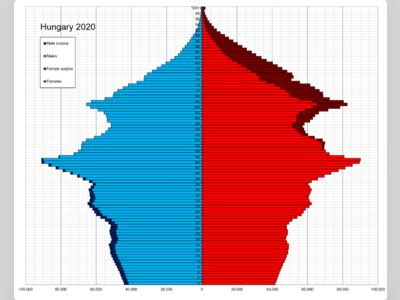EU Blamed for Trump's Tariffs: Hungarian Government Officials Respond
Hungarian Foreign Minister accuses EU leadership of failing to negotiate with the U.S. amid rising tariffs
Hungary's Foreign Minister Péter Szijjártó has publicly attributed responsibility for the recent 20 percent tariffs imposed on the European Union by U.S. President Donald Trump to the European Union's leadership.
This statement marks a significant position for Hungary, which has previously shown support for Trump's presidency and collaborated with his administration.
The tariffs, announced on Thursday, have faced widespread condemnation from various countries, with many describing the move as irrational and detrimental.
European Commission President Ursula von der Leyen labeled the tariffs as a severe impact on the global economy.
In a departure from the general consensus that places blame on Trump, Szijjártó instead suggested that the European Commission failed to adequately negotiate with the U.S. government prior to the tariff announcements.
According to Szijjártó, European economies—and consequently European citizens—are suffering due to what he labeled the incompetence of Brussels politicians.
He asserted that the European Commission should have engaged in discussions regarding tariff cooperation with the U.S. government over the past two and a half months.
He criticized the Commission for not effectively advocating for a reduction in automotive tariffs from the current European level of 10 percent to the U.S. rate of 2.5 percent.
Szijjártó’s remarks reflect a strategic political positioning by Hungary, amid rising tensions over trade policies and economic relations with the United States.
His critique focuses on the perceived failure of EU leadership to address economic issues pragmatically, instead of allowing ideological considerations to derail necessary negotiations.
This response occurs at a time when international attention is closely monitoring trade relations and their implications for global economic stability.
This statement marks a significant position for Hungary, which has previously shown support for Trump's presidency and collaborated with his administration.
The tariffs, announced on Thursday, have faced widespread condemnation from various countries, with many describing the move as irrational and detrimental.
European Commission President Ursula von der Leyen labeled the tariffs as a severe impact on the global economy.
In a departure from the general consensus that places blame on Trump, Szijjártó instead suggested that the European Commission failed to adequately negotiate with the U.S. government prior to the tariff announcements.
According to Szijjártó, European economies—and consequently European citizens—are suffering due to what he labeled the incompetence of Brussels politicians.
He asserted that the European Commission should have engaged in discussions regarding tariff cooperation with the U.S. government over the past two and a half months.
He criticized the Commission for not effectively advocating for a reduction in automotive tariffs from the current European level of 10 percent to the U.S. rate of 2.5 percent.
Szijjártó’s remarks reflect a strategic political positioning by Hungary, amid rising tensions over trade policies and economic relations with the United States.
His critique focuses on the perceived failure of EU leadership to address economic issues pragmatically, instead of allowing ideological considerations to derail necessary negotiations.
This response occurs at a time when international attention is closely monitoring trade relations and their implications for global economic stability.
AI Disclaimer: An advanced artificial intelligence (AI) system generated the content of this page on its own. This innovative technology conducts extensive research from a variety of reliable sources, performs rigorous fact-checking and verification, cleans up and balances biased or manipulated content, and presents a minimal factual summary that is just enough yet essential for you to function as an informed and educated citizen. Please keep in mind, however, that this system is an evolving technology, and as a result, the article may contain accidental inaccuracies or errors. We urge you to help us improve our site by reporting any inaccuracies you find using the "Contact Us" link at the bottom of this page. Your helpful feedback helps us improve our system and deliver more precise content. When you find an article of interest here, please look for the full and extensive coverage of this topic in traditional news sources, as they are written by professional journalists that we try to support, not replace. We appreciate your understanding and assistance.











